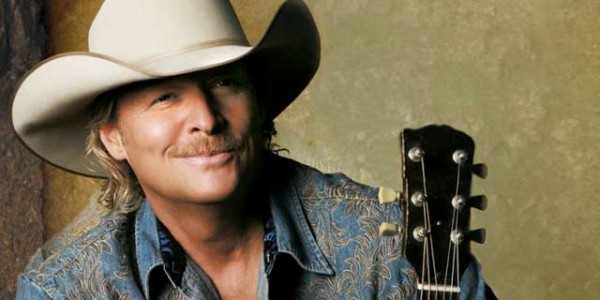ALAN JACKSON
Among Country Greats
I generally make it a point not to read other reviewers if I’m writing about a show, so as not to be influenced. Maybe I’ll skim it to see if they got a song title that I missed, but that’s about it.
But I did go to The New York Times’ review of Alan Jackson last week at Carnegie Hall when I saw it pop up on Twitter, mainly because I didn’t see anyone I knew there, not from the Times or anywhere, which I thought was strange. I mean, this is Alan Jackson, everybody! At Carnegie Hall!
Gee. Maybe you have to be Taylor Swift at the Garden now to get coverage? But AJ talked about having played the Garden, though I don’t remember that, unless he meant as part of the CMA Awards years ago when they were here. He also talked about playing Radio City and the Beacon, and CBGB, which I definitely do.
And in his endearingly rambling and mumbling manner, he also talked a lot about coming to New York a lot in a career in country music that is second to none. But okay, I glanced at the Times review, only to find that the reviewer, in a subtly negative appraisal, didn’t at all share my highest regard, while unfortunately making a couple observations I was going to make, but way differently.
Yes, I was going to note how he’s well past his commercial prime, and hence following others at similar career stages (Vince Gill, Kathy Mattea and Patty Loveless most quickly come to mind) who made rootsier-oriented records when country radio moved on to younger and bigger acts (not counting, of course, the great Dierks Bentley, whose 2010 gamble with his bluegrass album Up On The Ridge, released at the height of his commercial career, didn’t yield any big hits, though it was well received critically and hardly stunted his future growth).
But wait a second: Alan took a big risk, too, when he hired Alison Krauss to produce Like Red On A Rose in 2006—this, after Precious Memories, his first gospel album, also that year. The adult-contemporary sound of the Krauss production did beget a No. 1 country album with a pair of Top 20 hits, but is seen as an anomaly in Jackson’s Keith Stegall-produced hit work.
Stegall co-produced Alan’s new simply named bluegrass album The Bluegrass Album with Jackson’s nephew Adam Wright (who joined on a couple Carnegie songs), and contrary to the Times, it wasn’t a case of making “an album in a well-aged, roots-oriented genre that’s miles away from your native sound” in a “pop star quest for seriousness.”
Rather, bluegrass isn’t much of a jump for Jackson. It’s something he’s always wanted to do, he said at Carnegie, even if that’s what they all say. For not only is Jackson the most traditional of country music singers, he’s the most respectful of the music’s traditions, not only as evidenced by this concert and his entire recording career (see his cover choices, especially on his 1999 all-covers album Under The Influence), but by his ability to write in a traditional context, for good example, The Bluegrass Album’s “Appalachian Mountain Girl.”
The two main covers at the Carnegie, incidentally, were Bill Monroe’s “Blue Moon Of Kentucky,” which is appropriately on The Bluegrass Album, and Don Williams’ “Lord, I Hope This Day Is Good” (he had included Williams’ “It Must Be Love” on Under The Influence), here with special guest Lee Ann Womack—thereby putting the lie to the Times guy’s suggestion that on The Bluegrass Album, Jackson was following the alleged time-dishonored routine of collaborating with “people far more gifted but far less renowned,” conveniently neglecting to recognize the likes of past Jackson collaborators as Krauss, George Jones, George Strait and Jimmy Buffett.
Credit the Times for at least rightly appreciating Jackson’s “Where Were You (When the World Stopped Turning),” “perhaps the signature pop music response to the events of Sept 11,” the review rightly stated (though I’ll concede that Elvis Costello once disputed my same contention in favor of Springsteen’s “The Rising,” pointedly questioning how AJ, in the lyrics, didn’t know the difference between Iraq and Iran—probably like a majority of Americans then and now).
“Where Were You,” expectedly proved the most emotionally charged performance of the night, even as AJ, in customary cowboy hat, jeans, and rolled up black long-sleeve shirt, and chugging from a generic half-gallon plastic pitcher of water, remains one of the most laidback singer/performers in the genre. Still, he rightly took his place among such country greats as Ernest Tubb, Johnny Cash, Buck Owens and George Jones, who have graced the Carnegie Hall stage, a room, according to the Times, “that confers authority on the cheap,” perhaps, but not in any of these cases, Alan Jackson foremost.
Jim Bessman




comment closed